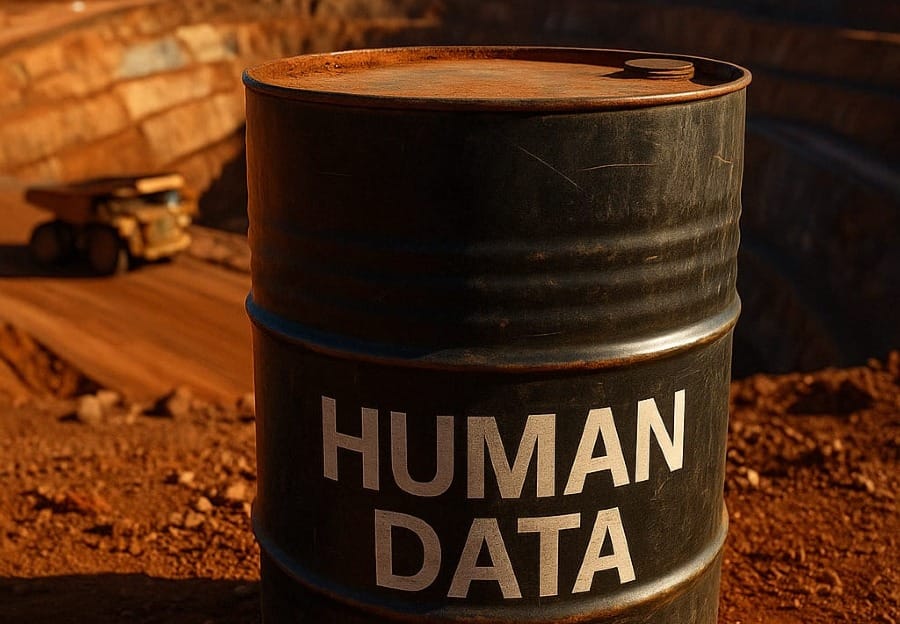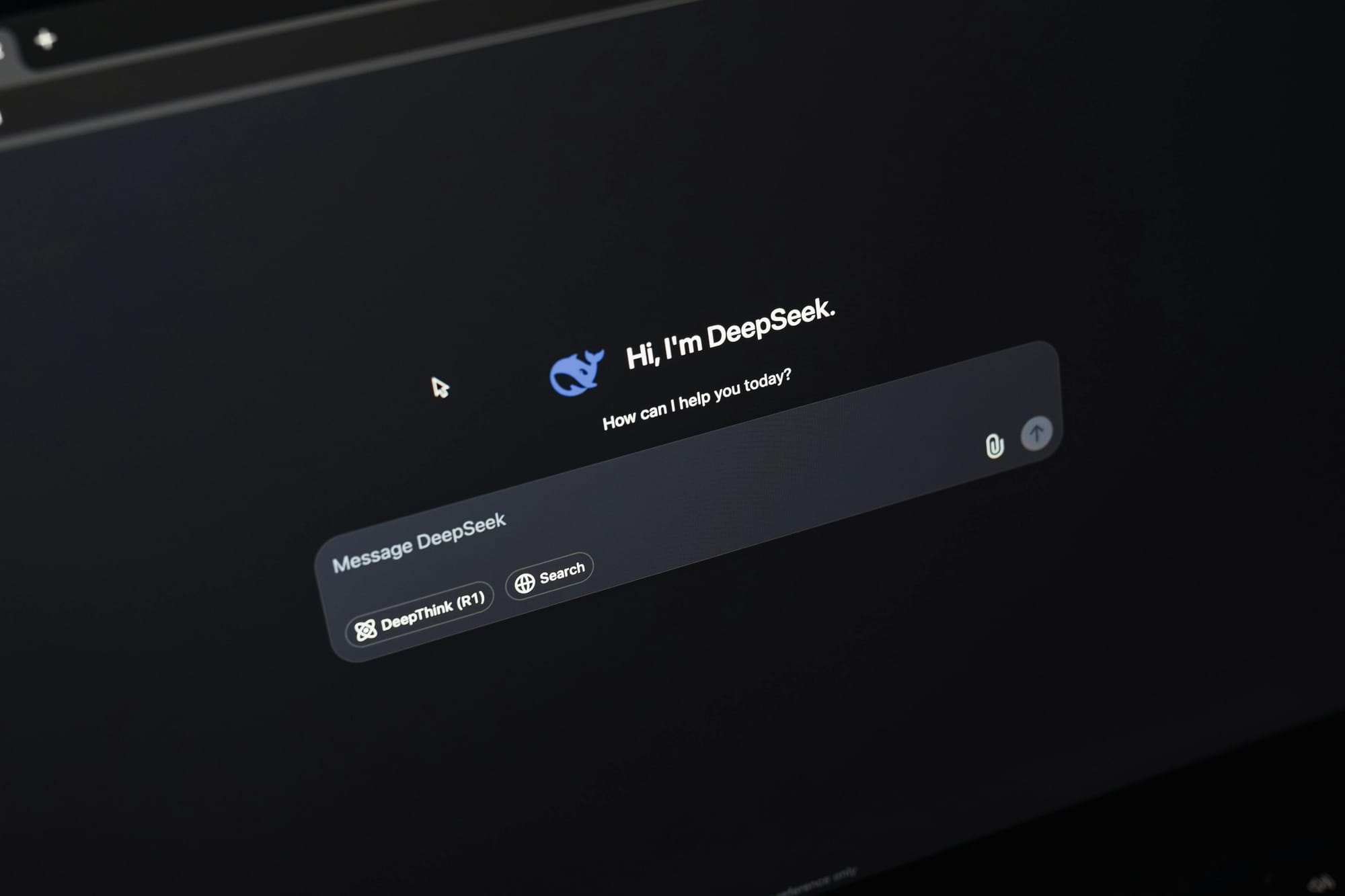Human-Generated Content, Signals & Data - the New Oil?
As AI systems race ahead, the real scarcity isn’t compute - it’s content. Human-generated data is drying up, and for Shopify brands, that means customer reviews, feedback, and signal are about to become your most important asset.

AI and its surrounding ecosystem of tools are advancing at breakneck speed.
But what happens when these systems have learned everything the internet has to offer?
If their intelligence is limited by the quality and volume of the data we feed them, what happens when that data runs out— or stops reflecting real human experience?
We’ve trained models on most of the internet. We’ve scraped Reddit, Wikipedia, StackOverflow, Yelp, Twitter, Quora, and millions of books.
“We will have exhausted the stock of low-quality language data by 2030 to 2050, high-quality language data before 2026, and vision data by 2030 to 2060.” Nature
AI systems are becoming more powerful - but less grounded, and dangerously reliant on recycled content and synthetic outputs. The web is being mined. The resource that powers it all?
Human-generated content, data, and signals.
We Taught the Machines - and They Still Need Us
AI owes everything to human input: reviews, posts, feedback, writing, arguments, questions, code, instructions. It wasn’t scraped from space — it was us, made machine-readable.
As these models improve, the demand for human data doesn’t shrink - it grows. AI is still only as smart as what we feed it.
And that stock—the raw, subjective, emotional, messy human signal
- can it keep up with demand?
Synthetic Data Isn’t the Solution (Yet)
Sam Altman and others believe synthetic data will bridge the gap. For some domains - structured code, logic, simulations - they’re probably right.
But for subjective, nuanced, cultural intelligence?
“Even a theoretically perfect training model won’t be any more impressive than a very clever human simulated at absurd clock speeds.” AP News
Without fresh, lived, diverse human experiences, AI stagnates.
It becomes smart without being grounded.
Fast without being relevant.
Fluent, but not trustworthy.
The Internet’s Most Valuable Resource
= Human Experience
Why are AI companies obsessed with Reddit?
Not because it’s pretty.
Not because it’s easy to parse.
But because it’s real.
“Reddit is a bridge between the digital and physical world. A place where people share what worked, what didn’t, what they feel, what they regret, what they love. It’s not data—it’s life.” The Generator / Medium
Human-generated content—especially feedback, reviews, and conversation—isn’t just useful. It’s foundational.
Without it, models don’t know what matters to us. What feels real. What works in the real world.

Could Human-Signal Platforms Become the Real Unicorns?
As AI companies race to build agents that can plan, act, and execute across the web, another layer is quietly being overlooked:
Who is building the pipelines that capture the data these agents actually need?
It’s a serious question.
Could the platforms that capture and connect human signal become as valuable as the AI tools themselves?
If language models are the engines, these signal platforms will be the refineries.
If agents need to continuously train and improve, someone needs to collect the reviews, feedback, real-world observations, taste preferences, mistakes, and insights.
Customer Content, Reviews, and Feedback Will Skyrocket in Value
Think about what customers do every day:
- Share a review on a new product
- Post a 30-second reaction on TikTok
- Leave a comment on a service experience
- Record a voice note about a bad unboxing
Until recently, these were just marketing assets.
Now, they’re training data.
And soon, they’ll be priced and protected as such.
What used to be a review is now a signal.
What used to be content is now capital.
Whether it’s for your brand, your chatbot, or your next-gen AI assistant,
authentic human input will be essential—not optional.

The Case for Real
Human-Crafted Data
Real data: Human-generated content provides a true representation of how individuals think, act, and make decisions in real-world scenarios.
This authenticity is invaluable - especially where understanding natural user interactions and preferences is essential to creating meaningful and engaging experiences.
Context matters too. Human data is rich with cultural, temporal, and situational nuance - things synthetic data struggles to recreate.
Validation is equally important: real data can be cross-checked and audited. Synthetic data can’t.
What Human Generated Data Looks Like:
Final Thought:
If AI Is the Future, Human Signal Is the Fuel
The next billion-dollar question isn’t “How do we build better models?”
It’s “How do we build better bridges to real human input?”
AI without human context is like a calculator without a user.
It may compute, but it doesn’t understand.
It can act, but it can’t care.
It can respond, but it doesn’t know why.
The future of AI isn’t just scale.
It’s grounding.
And grounding only happens through people.
So What Now?
If you’re building products for people — think about how you capture their input, not just for insight but for infrastructure.
And if you’re a user creating reviews, posts, content, or comments…
realise that you’re feeding the future.
Human-generated content
and signals are the new natural resources.
And we’re just beginning to understand their value.
Further Reading, Viewing & References
- The Role and Value of Human Data for AI – Devoteam
- Grounding AI – GigaSpaces
- Glossary: Grounding – Miquido
- Real World vs Synthetic Data – Shaip
- Video: What Happens When AI Consumes Everything Online?
- Video: How AI Depends on the Human Web
- Video: Why AI Companies Are Scrambling for Human Signal
- Video: AI’s Growing Dependence on Authentic Experience
- Video: Real TikTok Signal: The Unfiltered Customer Review
Isabelle Simon - Communications Lead - 82DASH




